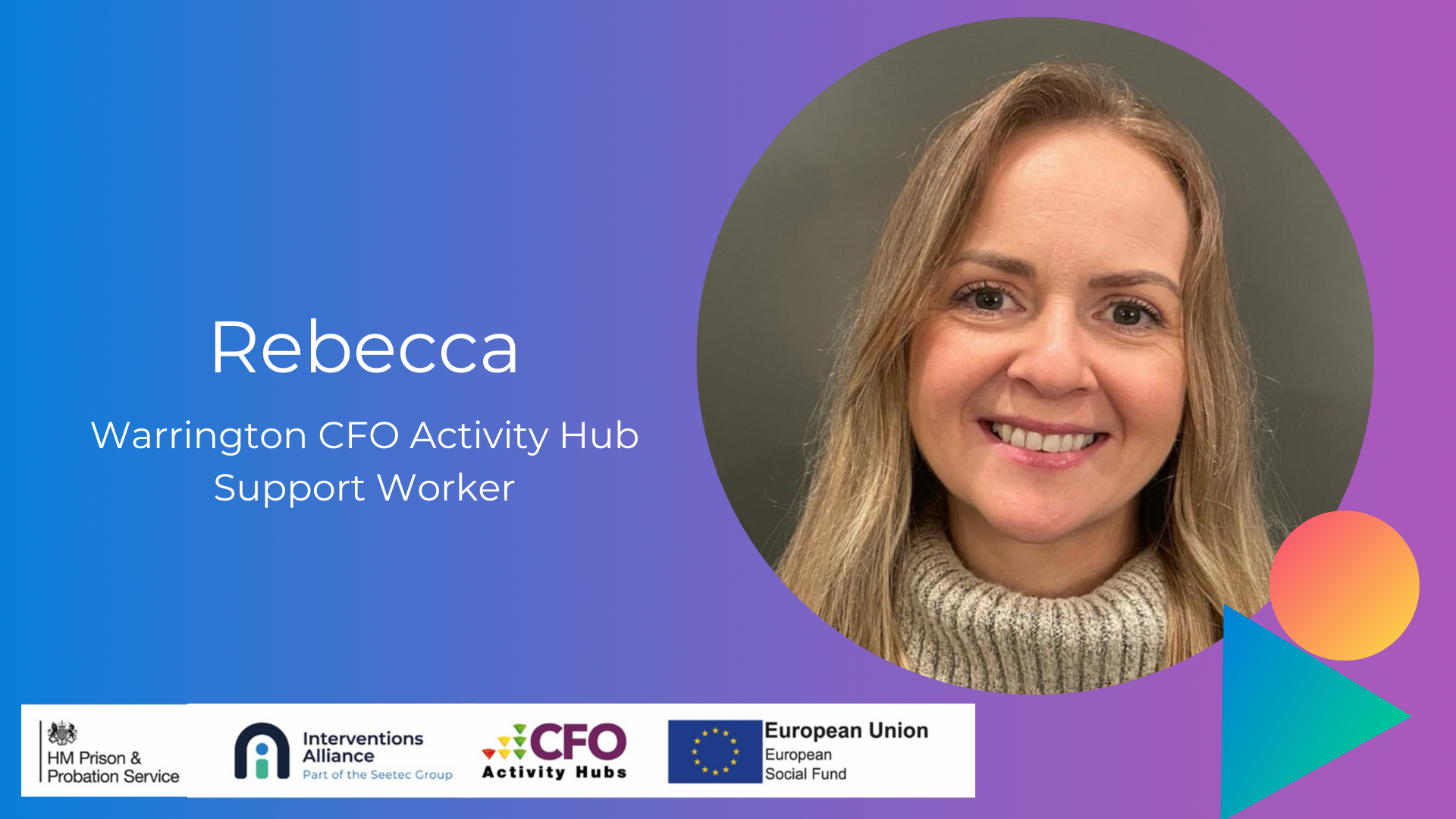Neurodiversity Celebration Week challenges misconceptions and stereotypes around neurological differences.
We’re proud to be supporting this week to champion one of our core values; ‘celebrating everyone’s uniqueness.’ As part of this, we’re shining a spotlight on one of our support workers at the Warrington CFO Activity Hub, Rebecca.
Rebecca specialises in supporting our neurodivergent participants as they progress through their rehabilitation and resettlement process.
- Tell us a little bit about yourself and what led you into working in the justice sector?
“I worked in the education sector for 25 years and for the last 11 of those years, I specifically supported young people with special educational needs and disability (SEND) to help individuals with autism and communication difficulties. That experience really helps me in my current role as a Support Worker at the Warrington CFO Activity Hub.”
- What do you enjoy the most about working with and supporting those who are neurodivergent?
“I love how each day is different and brings an opportunity for us to work together to improve their situation.
“The best feeling is when you get that breakthrough moment with the participant, when they grasp what they’re doing or fully immerse themselves in a session. Those moments feel very rewarding and it’s lovely when they trust you enough to open up about their problem so that we can solve them together.”
- How do you adapt your delivery and approach to support different neurodivergent needs?
“Each person who has a neurodivergent condition is different and needs an individual approach. I take the time to discuss and understand their specific sensory, educational or behavioural needs and then adjust my approach accordingly.
“For example; use of symbols, minimal language, sign and open/closed ended questions.
“Open body language with appropriate facial expressions are very important, and as a general rule I try to apply the 50/50 rule of speaking and listening, as some neurodivergent participants can take over the conversation whilst others prefer not to say much. Focus fidgets, sensory and physical breaks can help to keep the concentration levels up too.
“When in group sessions, it’s important that you make relevant learning aids available to encourage independence and promote self-confidence. I also use symbols and verbally offer assistance when appropriate.”
- Can you give us an example of a time you have worked with someone who is neurodivergent and they have shown positive progression?
“I worked with a college student who had limited English and Maths skills, she admitted that it was easier to ‘kick off’ and get sent out of lesson than to do any work.
“I created a bespoke plan including laptop work, phonics and employment aims. We worked on them everyday and set concrete goals for her to achieve. As an incentive, we set up voluntary work within the college-which she loved- to give her the will to achieve her goals independently.
“We eventually encouraged her to join our guided reading session and she was reading novels by the end of the year.
“This approach focuses on identification of an issue or problem, understanding obstacles, working on planned or structured outcomes-agreed by both the participant and the support worker- leading to achievements gained and appreciated!
“It’s an approach that I continue to practice in my role now.”
If you’d like to know more about how our CFO Activity Hubs are supporting people to build a brighter future, click here: CFO Activity Hubs – Interventions Alliance | Interventions Alliance


